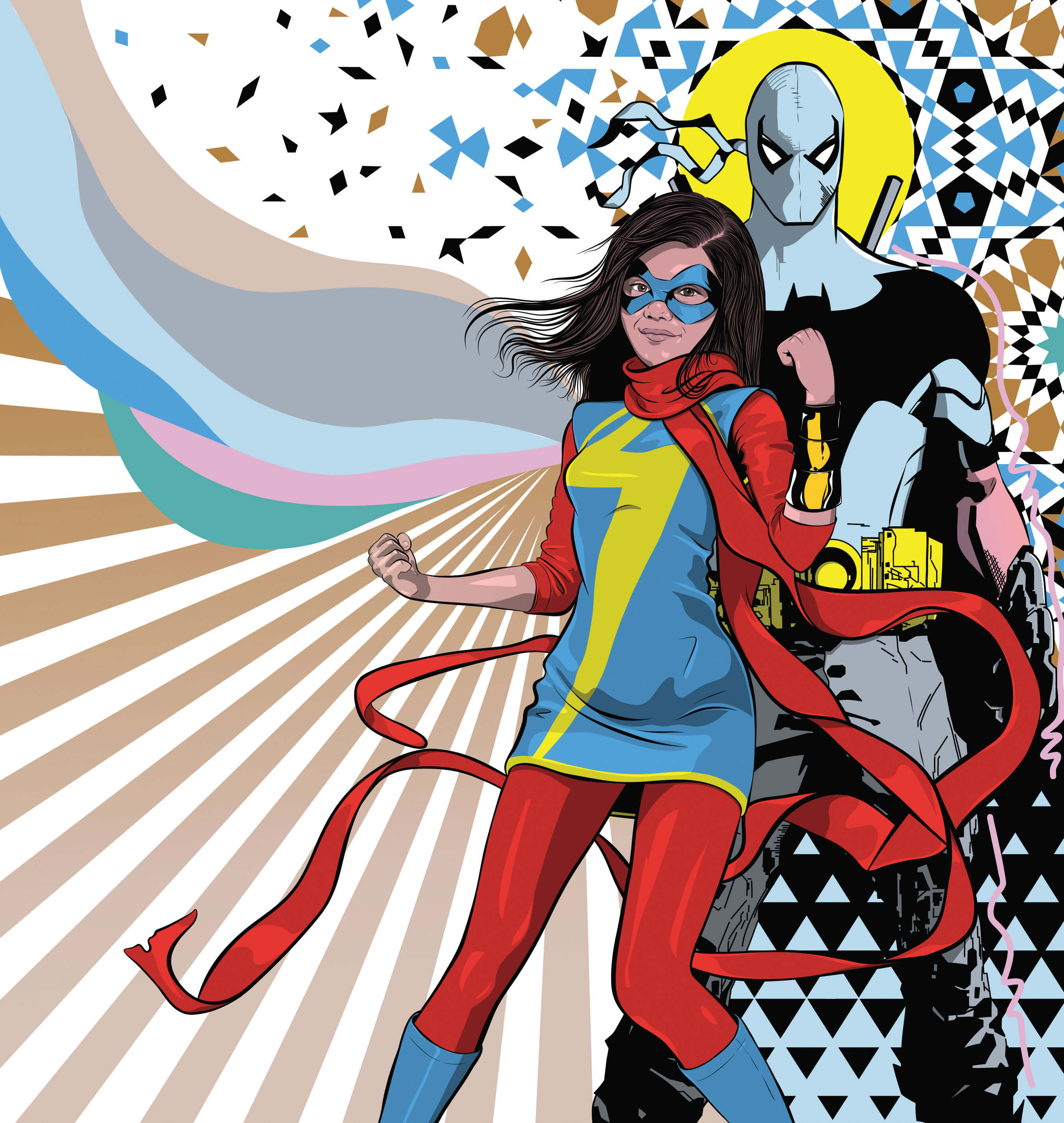
A Study in Superheroes
Professor Maryanne Rhett’s students are exploring inclusivity and intellectualism through an unexpected source.
It was during her time as a teaching assistant that Maryanne Rhett, today a Monmouth professor of Middle Eastern and world history, discovered a new teaching tool. The class had been assigned to read Persepolis, a graphic memoir of a woman who lived through the Iranian revolution. “I started to realize that there were other avenues to present material than the traditional book,” says Rhett.
Not long after, she taught her first European history class using The League of Extraordinary Gentlemen. “It was a way to introduce my students to Victorian-era themes, literary characters, and political ideas because they’re all so deeply embedded in this superhero story.”
Since then, Rhett has become a fan of the academic impact of comics—read broadly as strips, superhero floppies, and graphic novels and memoirs—often using them in the classroom. “I was floored at how much my students were able to delve in and take away. And they loved finding the Easter eggs. From there, it was, ‘I’m not looking back; I’m just going to keep doing this.’” As she’s done the work of teaching and studying comics, she’s watched trends in how students receive the material and in the artistic works themselves.
It was around 2008 that Rhett saw a new pattern emerging: Comic book and graphic novel characters—specifically lead characters—were becoming more inclusive. Though Batman was the traditional white hero we’ve known since 1939, his sidekick Nightrunner, introduced in 2010, was a French Algerian Muslim.
Nightrunner’s debut was met with some criticism in the U.S. as stereotyping and misinformation around Muslims and jihadis skyrocketed post 9/11. But Nightrunner, says Rhett, helped pave the way for Ms. Marvel, who will make a Disney+ debut this year in a miniseries highlighting the life of Kamala Khan, a 16-year-old Pakistani-American.
I was floored at how much my students were able to delve in and take away. And they loved finding the Easter eggs. From there, it was ‘I’m not looking back; I’m just going to keep doing this.’
It’s the introductions of these characters that allow us to better explore the history and identity of a people, as Rhett recently highlighted in a piece written for Das Goethe, a biannual insert in Die Zeit, the publication of the Goethe Institute.
The Ms. Marvel floppy comic opened doors: “A lot more people who weren’t necessarily going to comic shops and buying comic books were accessing this material,” says Rhett. “They saw themselves in these new characters, in particular in Kamala Khan.” It was quite the untapped market: Ms. Marvel was the No. 1 digital seller for Marvel the year she first appeared in 2013.
It’s not just the appearance of these characters that’s important—Muslim characters have shown up in comics since the turn of the 20th century. The difference, says Rhett, is in how they’re showing up. “At the turn of the 20th century, when we saw Muslim characters in, say, comic strips in the United States, they’re all very Orientalized,” she says. “The women all wear veils; they’re all part of a harem. If they say anything, it’s very rare. They’re usually quiet, and very often they’re there to be saved by a European or American hero.”
Ms. Marvel’s origin story is much different, and Rhett reads it as an exploration of culture and generational identity. “We learn of her grandmother experiencing partition of India and Pakistan and all the chaos that went with that,” says Rhett. “There’s this idea of a lot of shifting and moving and not having a home. Then Kamala’s mom relocates to the United States with her father. And then, ultimately, Kamala feels dislocated from her sense of space—who she is in all of this—because of the superpower that she gains. These three women all have the experience of never quite knowing where they fit in.”
Though the women grapple with identity in the scenes of comics, with the debut of Ms. Marvel, Kamala—and the generations that preceded her—have solidified their place in the outside world. Instead of being the one waiting to be saved by the white superhero, says Rhett, Kamala is doing the saving.